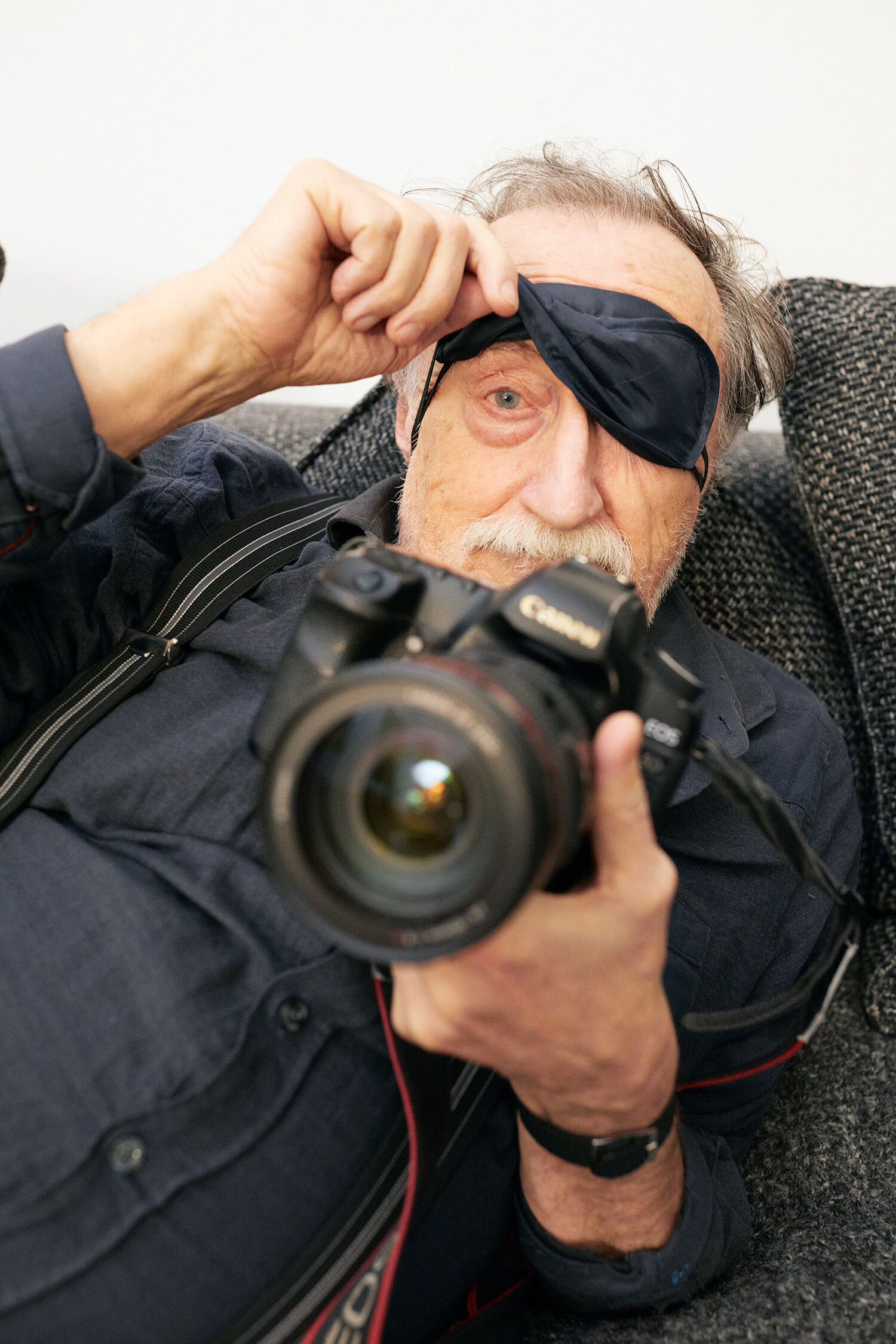Parliament
May 13–November 26, 2017
Campo de la Tana, 2169
30122 Venice
Italy
Appointed by The Ministry of Culture of Ukraine, Dallas Contemporary Executive Director Peter Doroshenko and Assistant Curator Lilia Kudelia have commissioned a series of unique satellite projects by emerging Ukrainian artists to reference Boris Mikhailov’s solo exhibition at the Ukrainian Pavilion at the 57th Venice Biennale. Reflecting on the lineage of Ukrainian contemporary art, SVITER art-group & Ivan Svitlychnyi, collective Zhuzhalka, and fashion designer Anton Belinskiy will present works at the Ukrainian Pavilion in an expansion of the Venice Biennale 2017 title theme VIVA ARTE VIVA! through distinctive interpretations of “discoveries and rediscoveries” within the artistic practice.
The Ukrainian Pavilion’s primary exhibition features new work by seminal Ukrainian artist Boris Mikhailov, curated by Peter Doroshenko and Lilia Kudelia. Entitled “Parliament” (2014–17), the series explores the relationship between photography and the devices through which society consumes media. Focusing on the interplay between analog and digital representation, particularly in the context of recent political affairs such as the military conflict in Eastern Ukraine, Mikhailov has “tried to express the crisis through the Suprematist disintegration of the figurative by examining the broadcast of parliamentary debates and the interaction of verbal and visual manifestations that correspond with these images.” Adopting the aesthetics of glitch art and decomposed images which serve as visual metaphors for cyberbalkanization and the splintering of media communities, the artist continues his search for expressive visual techniques to supplement his signature superimpositions, aniline hand-coloring, and handwriting on the margins of photographs. “Parliament” is a manifestation of the global political climate, current media landscape and the post-truth society in which we live—the work serving as a code for understanding a paranoid state of society where media bias, radical power imbalances, fake news, and manipulation of information have become the norm.
Lilia Kudelia, Dallas Contemporary Assistant Curator, provides additional background: “Boris Mikhailov was born in 1938, the same year television broadcasting began in the USSR. He devoted himself to photography around 1967, when his signature superimposition works emerged at the same time color television began broadcasting in Soviet Ukraine. In today’s world increasingly populated by ‘TV cord cutters,’ television as cultural analysis still courses through Mikhailov’s veins.”
Expanding on the theme of this edition of the Venice Biennale, curators Doroshenko and Kudelia have also organized commissions by several notable contemporary Ukrainian artists to reflect upon and respond to the work in Boris Mikhailov’s solo exhibition:
SVITER art group and Ivan Svitlychnyi, whose work overlaps with Mikhailov’s interest in the mutation of information and data echo chambers, will present a site-specific sound installation in which drum machines and electronic synthesizers create a unique algorithm that converts data in and around the pavilion into audio tracks in real time.
Collective Zhuzhalka will present a photo series created through the fusion of the “Kiev” (a Soviet camera) and modern digital camera in a process whereby photos are created only when the viewfinders of the two cameras catch the same object simultaneously. Entitled Plague, the photo publication symbolizes the act of blindly taking a photograph in space and comments on the often haphazard convergence between the photographer and the photographed subject.
Fashion designer Anton Belinskiy will provide another facet to the exhibition through the dedication of his capsule clothing collection to the Ukrainian Pavilion, following his interest in the intermingling of “global, hyper-local, and patriotic spectacles.” Signs of capitalist trade are closely intertwined with artifacts of emerging national identity on the surfaces of the clothing: a Visa card logo evokes the colour of the Ukrainian flag, while a cash machine screen implores the audience to select a user language—Ukrainian, Russian, or English—highlighting the volatility of identity within contemporary Ukrainian society.
Collectively, the works presented through these satellite projects provide not only a response to but also an extension of the themes in Mikhailov’s work, reiterating the need for information verification platforms and digital literacy campaigns.
An artist book, directed by renowned photographer Juergen Teller and published by RODOVID PRESS, will feature works from the exhibition along with a “backstage look” at the production of Mikhailov’s “Parliament” series. Peter Doroshenko, Dallas Contemporary Executive Director, states: “Since the late 1990s, Boris Mikhailov and Juergen Teller have shared a unique and at times complementary view of the world through their photography. Their bond and friendship arises from not being afraid to push their photography and creating rich narratives for their images. Mikhailov and Teller put the viewer in a position of realising the nature of perception by emphasising the process of re-contextualization.”
The exhibition will be on view from May 13 to November 26 in Venice, Italy and will travel to Dallas Contemporary in 2018.
About Dallas Contemporary
Dallas Contemporary is a non-collecting art museum presenting new and fresh ideas from regional, national and international artists. Modeled after European art centers and located in an industrial building in the Design District, Dallas Contemporary is one of the only institutions of its kind in the United States, offering temporary exhibitions, important lectures and seminal learning programs.



